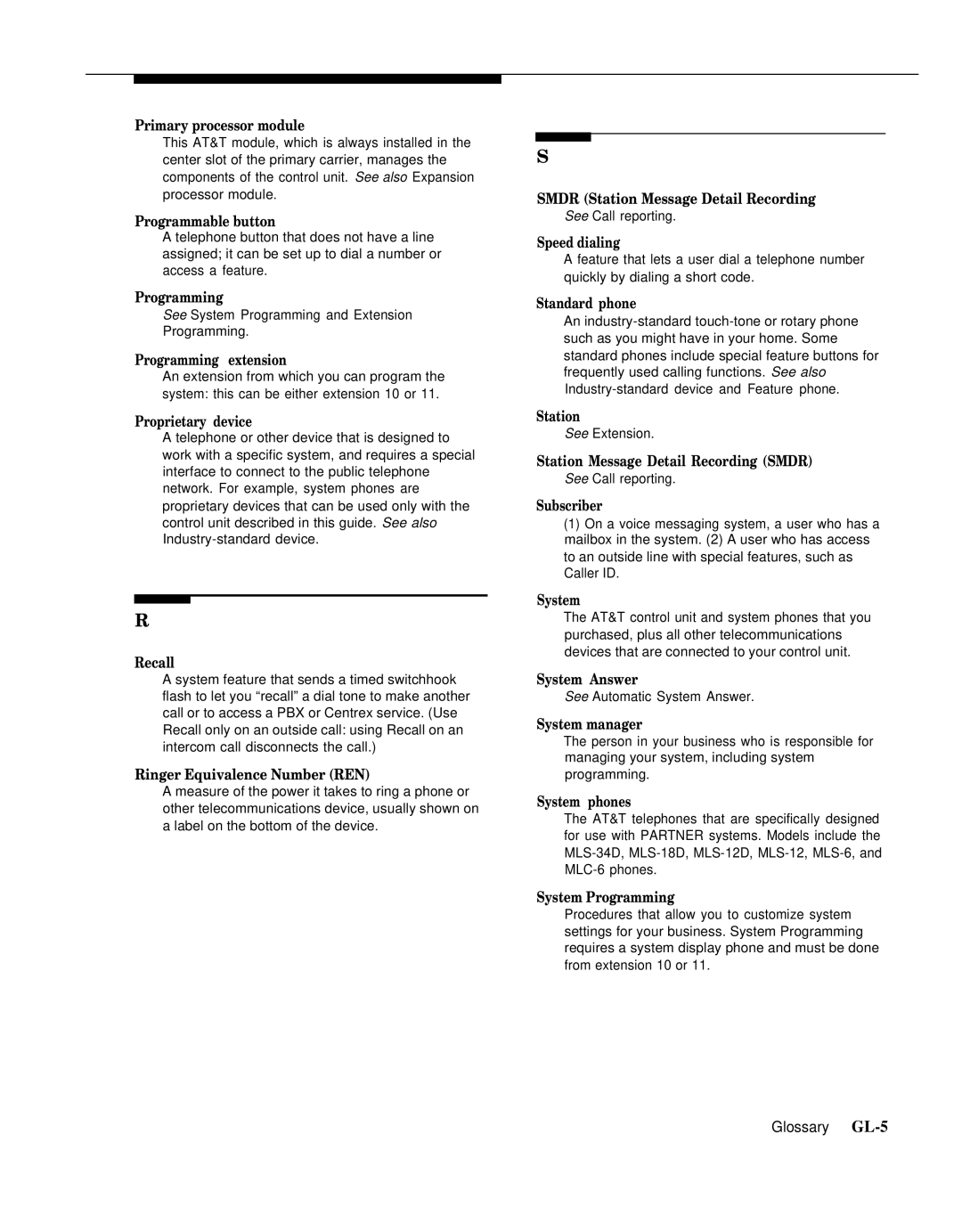
Primary processor module
This AT&T module, which is always installed in the center slot of the primary carrier, manages the components of the control unit. See also Expansion processor module.
Programmable button
A telephone button that does not have a line assigned; it can be set up to dial a number or access a feature.
Programming
See System Programming and Extension
Programming.
Programming extension
An extension from which you can program the system: this can be either extension 10 or 11.
Proprietary device
A telephone or other device that is designed to work with a specific system, and requires a special interface to connect to the public telephone network. For example, system phones are proprietary devices that can be used only with the control unit described in this guide. See also
R
Recall
A system feature that sends a timed switchhook flash to let you “recall” a dial tone to make another call or to access a PBX or Centrex service. (Use Recall only on an outside call: using Recall on an intercom call disconnects the call.)
Ringer Equivalence Number (REN)
A measure of the power it takes to ring a phone or other telecommunications device, usually shown on a label on the bottom of the device.
S
SMDR (Station Message Detail Recording
See Call reporting.
Speed dialing
A feature that lets a user dial a telephone number quickly by dialing a short code.
Standard phone
An
Station
See Extension.
Station Message Detail Recording (SMDR)
See Call reporting.
Subscriber
(1)On a voice messaging system, a user who has a mailbox in the system. (2) A user who has access to an outside line with special features, such as Caller ID.
System
The AT&T control unit and system phones that you purchased, plus all other telecommunications devices that are connected to your control unit.
System Answer
See Automatic System Answer.
System manager
The person in your business who is responsible for managing your system, including system programming.
System phones
The AT&T telephones that are specifically designed for use with PARTNER systems. Models include the
System Programming
Procedures that allow you to customize system settings for your business. System Programming requires a system display phone and must be done from extension 10 or 11.
Glossary
